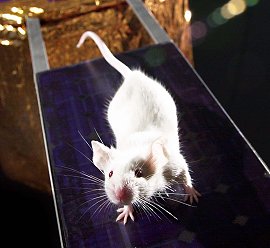Unclean animal
Unclean animals are animals that are considered not suitable for human consumption according to various religious dietary laws, most notably in Judaism and Islam. These dietary laws define foods that are permissible for consumption and those that are forbidden, which are often termed as "unclean".
Judaism[edit | edit source]
In Judaism, the Torah specifies which animals are considered clean and unclean in the Book of Leviticus and the Book of Deuteronomy. According to these texts, land animals that chew the cud and have cloven hooves are considered clean and therefore fit for consumption. Examples of clean animals include cows, sheep, and goats. In contrast, animals that do not meet these criteria, such as pigs, rabbits, and camels, are deemed unclean.
Seafood is considered clean if the creature has fins and scales. Thus, fish like salmon and trout are permissible, whereas shellfish such as shrimp, crabs, and lobsters are unclean. Birds of prey, carrion eaters, and most insects are also classified as unclean.
Islam[edit | edit source]
In Islam, the concept of clean and unclean animals is addressed in the Quran and further detailed in the Hadith. Animals that are considered halal, or lawful, are permissible for Muslims to eat, while those that are haram, or unlawful, are not. Generally, all land animals are considered halal if they are herbivorous and slaughtered in the name of Allah. However, pigs are explicitly forbidden, making them unclean. Most sea creatures are considered halal, but the exact specifications can vary among different Islamic scholars.
Differences and Similarities[edit | edit source]
While the dietary laws of Judaism and Islam have their differences, they share similarities in the classification of certain animals as unclean. Both religions prohibit the consumption of pork, making the pig a universally unclean animal in these faiths. The reasoning behind these dietary laws varies, with some explanations rooted in health concerns, spiritual purity, and obedience to divine commandments.
Impact on Culture and Society[edit | edit source]
The concept of unclean animals has had a significant impact on cultures and societies throughout history. Dietary laws have influenced food preparation, dietary habits, and even the agricultural practices of communities. They also play a role in social and religious identity, marking boundaries between different faiths and cultural groups.
Search WikiMD
Ad.Tired of being Overweight? Try W8MD's physician weight loss program.
Semaglutide (Ozempic / Wegovy and Tirzepatide (Mounjaro / Zepbound) available.
Advertise on WikiMD
|
WikiMD's Wellness Encyclopedia |
| Let Food Be Thy Medicine Medicine Thy Food - Hippocrates |
Translate this page: - East Asian
中文,
日本,
한국어,
South Asian
हिन्दी,
தமிழ்,
తెలుగు,
Urdu,
ಕನ್ನಡ,
Southeast Asian
Indonesian,
Vietnamese,
Thai,
မြန်မာဘာသာ,
বাংলা
European
español,
Deutsch,
français,
Greek,
português do Brasil,
polski,
română,
русский,
Nederlands,
norsk,
svenska,
suomi,
Italian
Middle Eastern & African
عربى,
Turkish,
Persian,
Hebrew,
Afrikaans,
isiZulu,
Kiswahili,
Other
Bulgarian,
Hungarian,
Czech,
Swedish,
മലയാളം,
मराठी,
ਪੰਜਾਬੀ,
ગુજરાતી,
Portuguese,
Ukrainian
Medical Disclaimer: WikiMD is not a substitute for professional medical advice. The information on WikiMD is provided as an information resource only, may be incorrect, outdated or misleading, and is not to be used or relied on for any diagnostic or treatment purposes. Please consult your health care provider before making any healthcare decisions or for guidance about a specific medical condition. WikiMD expressly disclaims responsibility, and shall have no liability, for any damages, loss, injury, or liability whatsoever suffered as a result of your reliance on the information contained in this site. By visiting this site you agree to the foregoing terms and conditions, which may from time to time be changed or supplemented by WikiMD. If you do not agree to the foregoing terms and conditions, you should not enter or use this site. See full disclaimer.
Credits:Most images are courtesy of Wikimedia commons, and templates, categories Wikipedia, licensed under CC BY SA or similar.
Contributors: Prab R. Tumpati, MD




